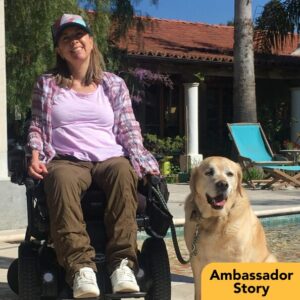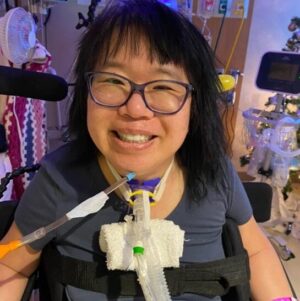On April 23, 2025, our client Tim Fuller received the gift of life through a living kidney donation from his daughter, Tanis.
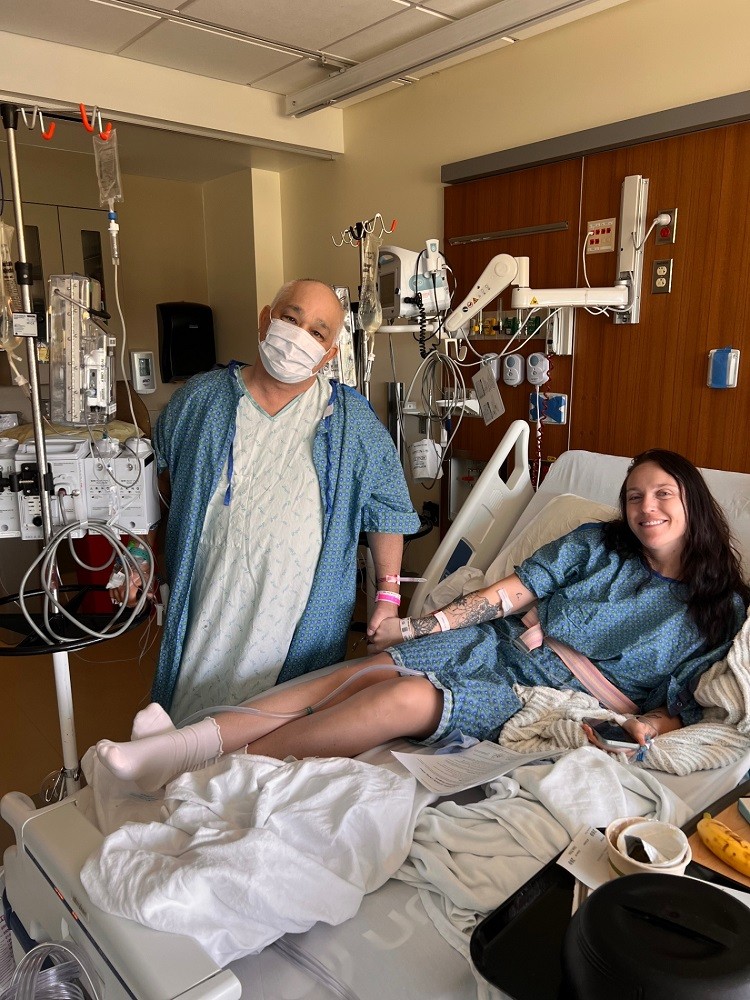
By their sides at every step of the journey are Tim’s youngest daughter, Makaya, and his wife, Sarah, who he calls his “best friend and absolute soulmate in life.”

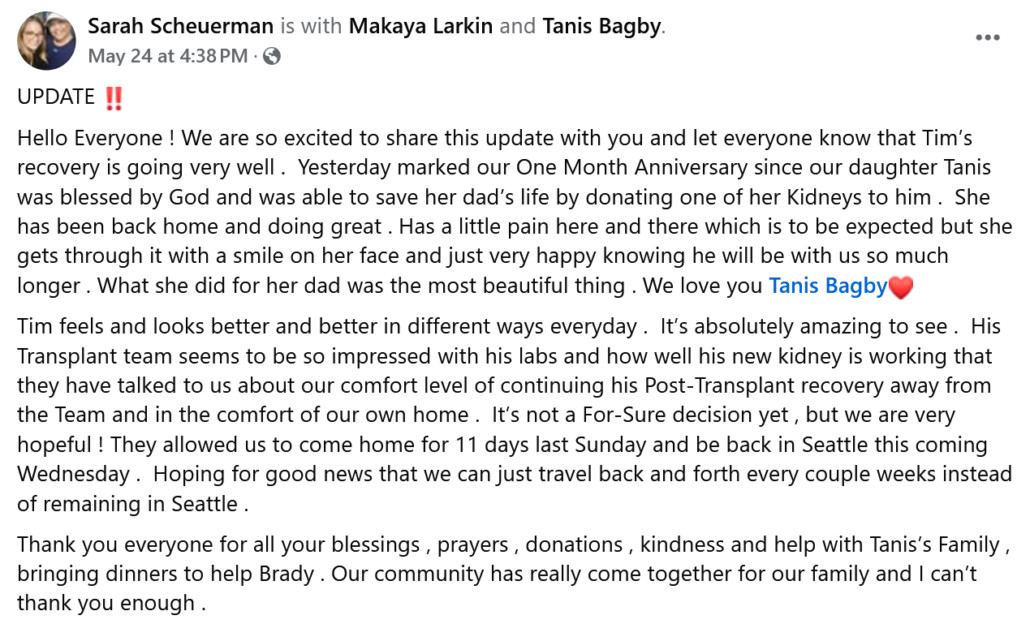
During the weeks leading up to the transplant, we asked Sarah, Tim, and Tanis to tell us about the journey to living donation. Their answers in this blog post capture the complex emotional reality of being touched by transplant.
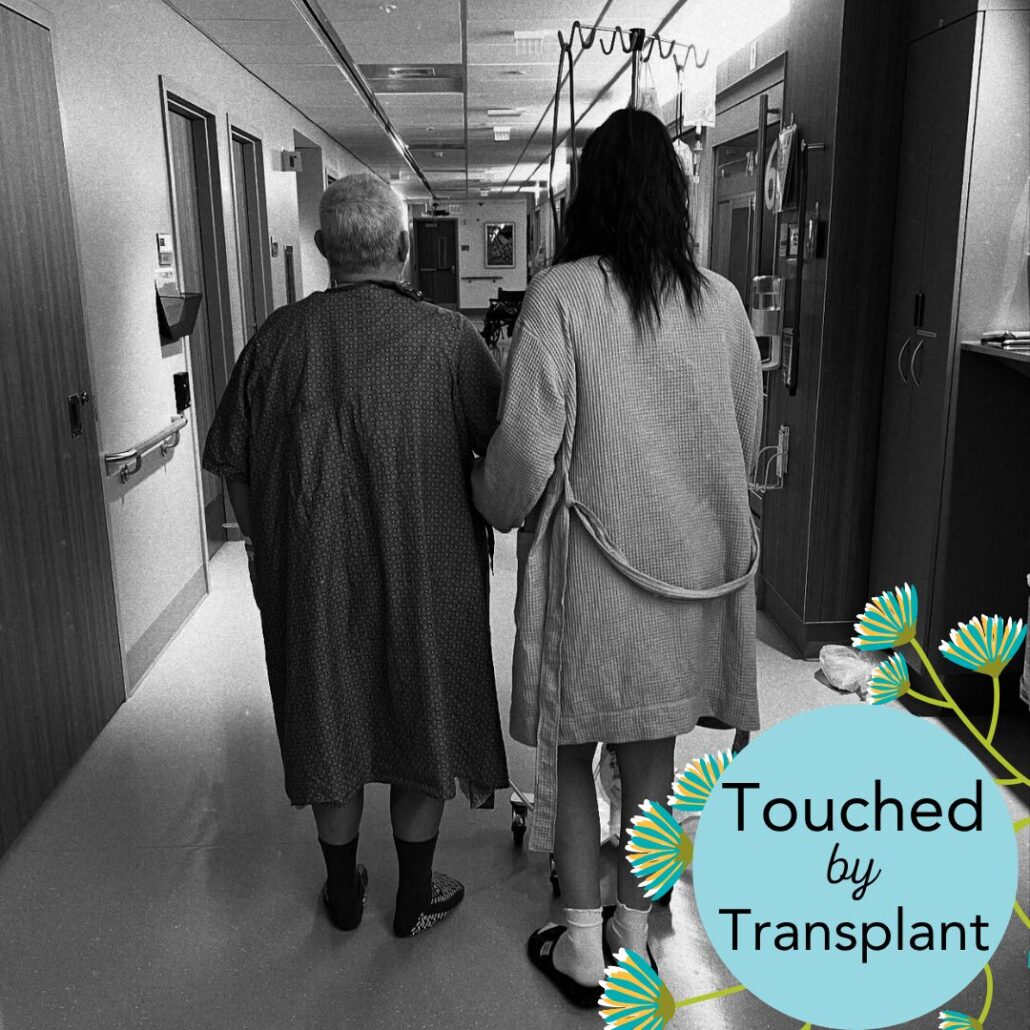
What does it mean to you to see this gift of life unfolding?
Sarah: Tanis, our oldest daughter, is giving Tim the gift of life back so he can be here longer with us. This is a life-changing moment for our family and the most incredible gift, not only to Tim for more life but to Tanis for becoming the one to give her daddy more life.

Tanis: I had been curious about being a living donor since I learned my dad was sick and was going to need a transplant. At first, I wasn’t eligible because of two C-sections that took place 21 months apart. Once I was, the transplant team reached out to me to let me know I would be a great option if I wanted to proceed.
I decided to move forward silently to see if it was even possible.
My dad is my best friend and my rock. He raised me, and I figured this would be a tiny way to pay him back for all he has done for me.
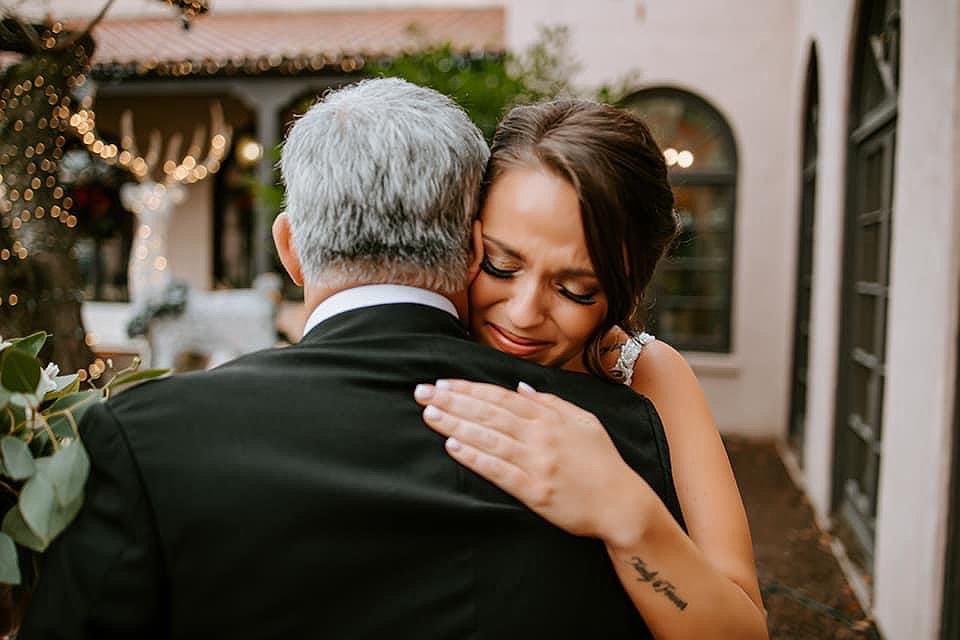
Tell us about the process of becoming a living donor.
Tanis: I was surprised by how easy it was! The testing process was a lot of bloodwork and waiting, but it was really well-organized, and I felt so supported by the transplant team. I never felt lost or like I didn’t understand the expectations and road ahead.
My advice to anyone interested in pursuing living donation is to ask questions and take the full support of your transplant team.
They truly care and want you to make the best decision possible.
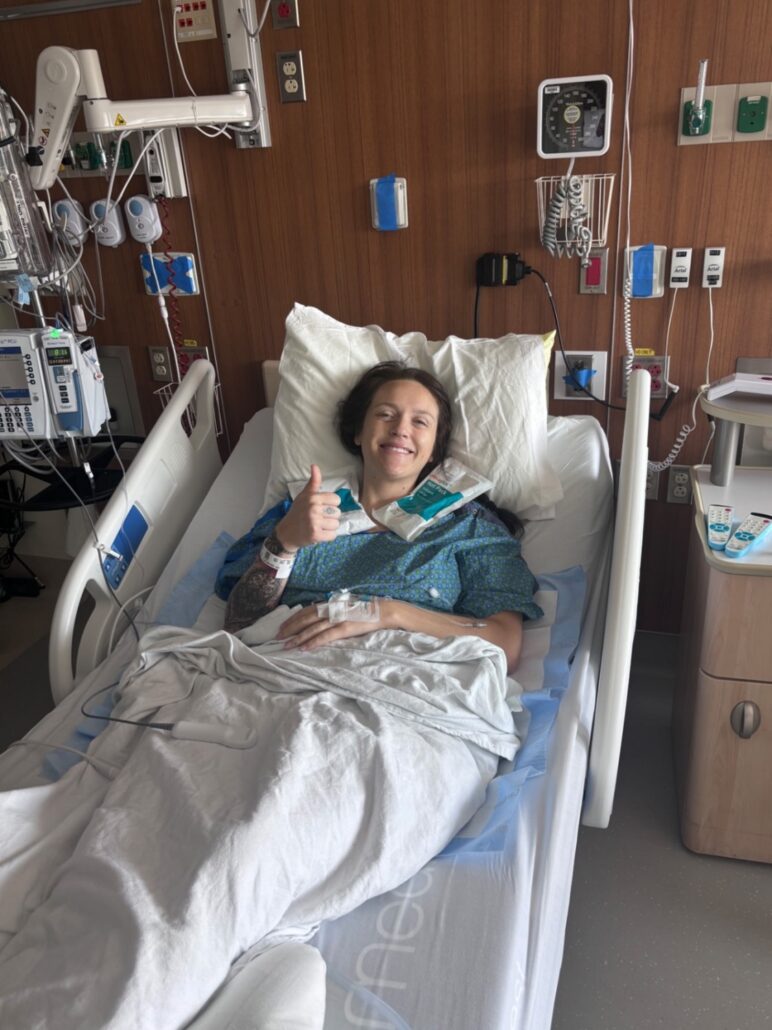
How did transplantation first become a part of your lives?
Sarah: While we didn’t have a lot of experience with transplants, we did know someone who was dear to my heart (I love and miss her so much) who was impacted by transplantation and organ donation: Tim’s mother, Luningning Fuller. She had a kidney transplant that gave her 30 more years of life with us.
Tim and I blended our beautiful family 18 years ago, so I wasn’t here for the time of her transplant, but I was able to see her have a long, happy life following the transplant.
Tim began working for UPS as a Christmas helper in 1989 and has been a UPS driver since January 1995. I was used to seeing him being active and having so much energy.
I slowly began to notice that his energy was declining.

He used to come home from work tired, just because of the type of work he did and how long his days were. As time went on, he became so exhausted and weak that he could barely walk into our home. He would have to immediately sit down for a while.
Work was starting to get harder for him. Tim worked long shifts every day, and he didn’t have the luxury to just stop and rest.
Tim went in for a routine yearly checkup and bloodwork in the fall of 2021. He received a call from his doctor saying his creatinine level was really high, and that is how his road to transplant started.

How did you feel when you learned a transplant was in the future?
Tim: I still felt healthy and like nothing was wrong with me. I thought drinking more water and eating healthy would reverse my minor symptoms.
At first, I felt disbelief…I eventually found out how wrong I was.
Now, having dialysis treatment 3 days per week for multiple years, the diagnosis has become part of my reality and daily routine. I reached a stage where I accepted it and made the commitment to rise above it.
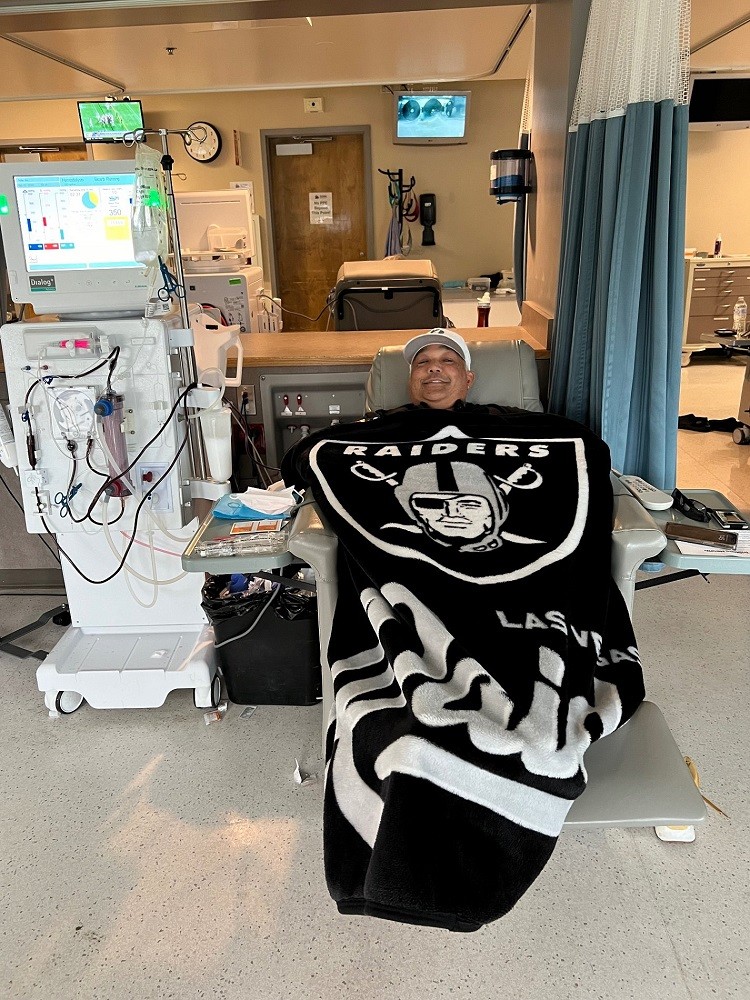
Sarah: “It is now time we talk about you needing a kidney transplant.” When I heard these words, I immediately felt fear. Fear for Tim. Fear for me. Fear for our whole family.

I didn’t know much about transplants aside from my experience with Tim’s mother and the knowledge that there was a long waiting list to get one.
Tim is everything to me, and I cannot even imagine my life without him. But in the midst of all this fear, I looked right into my husband’s eyes and said to myself, “We got this.”
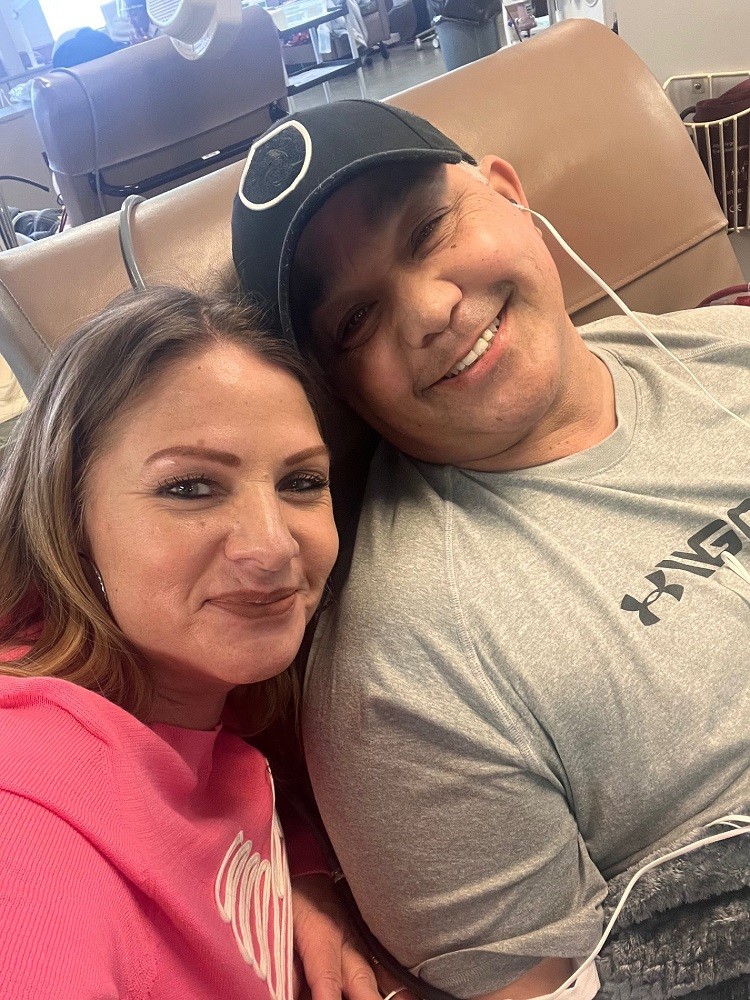
I have gone through other personal struggles aside from fear, including anxiety and depression, as we navigate this time in our lives.
I constantly have the thought in my head that, realistically, I could lose my husband, soulmate, and best friend in life at any point—and our children and grandbabies could lose their father and grandfather.
Over time, that feeling of fear has not gone away. However, I have learned so much since that day he started working toward being listed for a transplant.
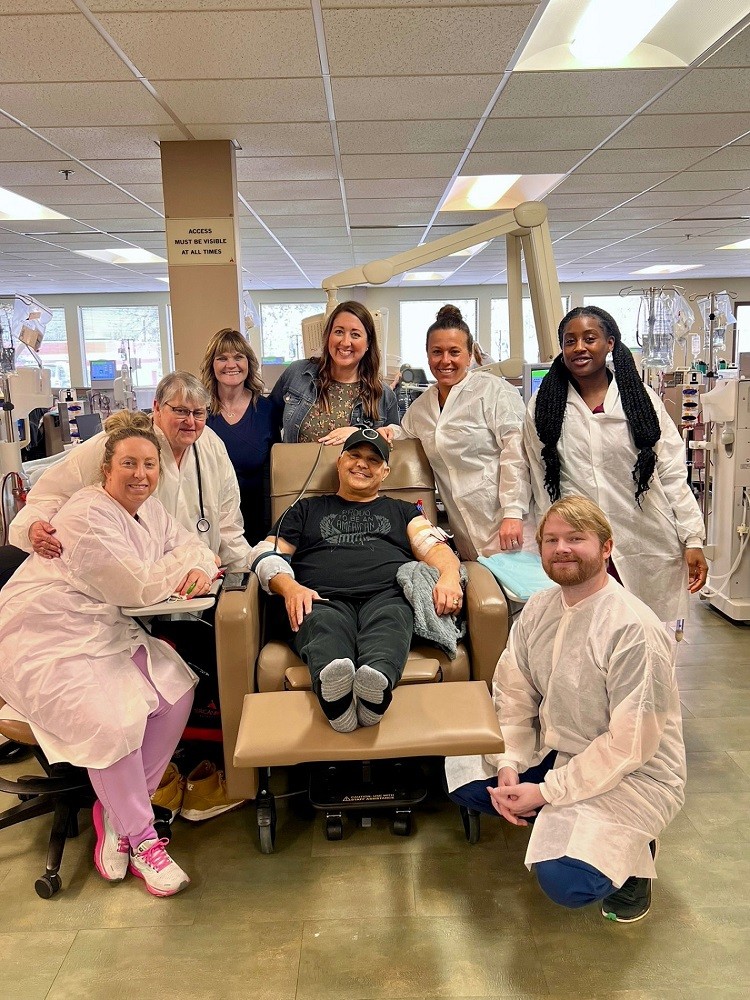
I try to live every day like it’s our last, but I do still struggle with the what-ifs.
I wish I could just put Tim inside a bubble to protect him. I also struggle with a lot of sadness, and the thought that I wish it was me instead of him. He has gone through so much during this journey and so many different complications. I am with him every step of this journey, through every appointment and surgery.
Despite the fear, I have also felt so hopeful during this journey.
At times I have thrown up my hands and said, “Please—we have gone through enough.” Tim has helped me to realize and know in my heart that God does have a plan and everything happens for a reason.
We get through all of these emotions as a family, and we keep going.
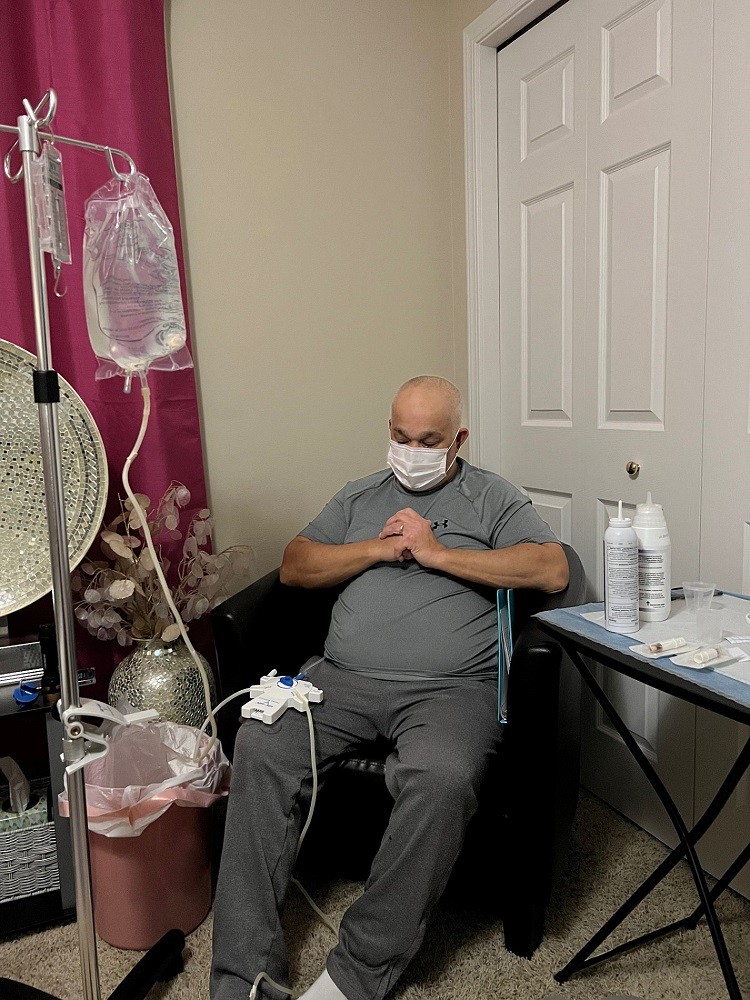
How did your family react to this transplant need?
Tim: My family members were very saddened. They knew my two brothers had dodged the bullet so far but that I had fallen into this disease. That being said, they were supportive and optimistic, especially thanks to the long life my mother had after her transplant.
My wife has helped me in so many ways to feel confident that I will overcome this disease. Her love, support, and trust in God will carry me through this journey.
My two daughters have shown so much love and compassion, and that has given me the strength to carry on and keep fighting the good fight.
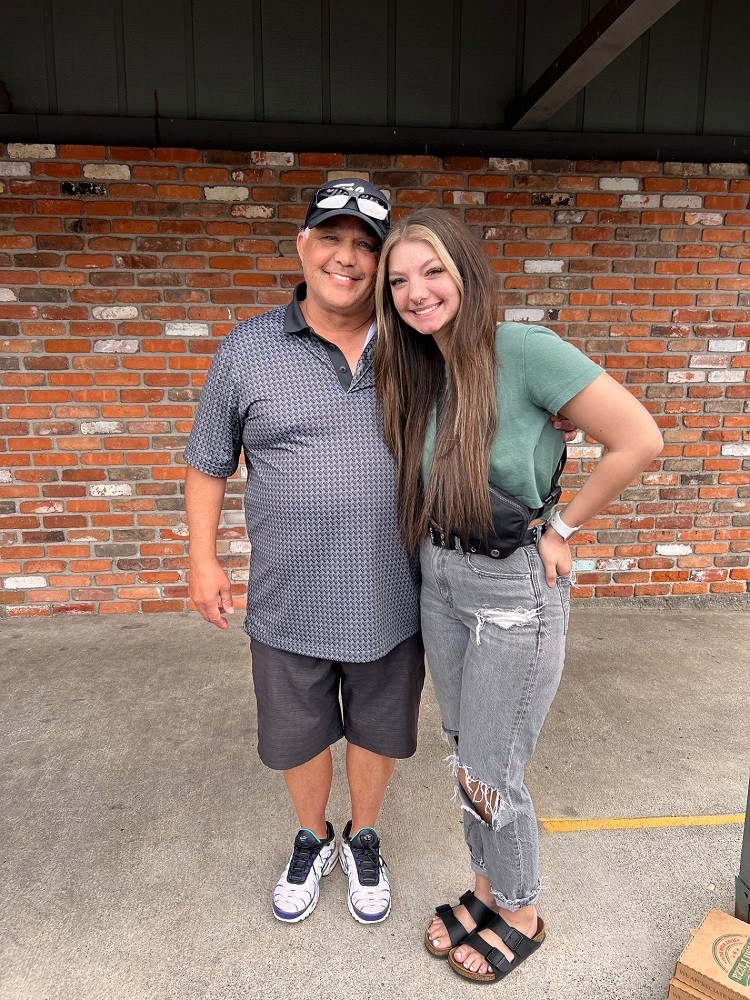
How did life change due to Tim’s battle with kidney disease?
Tim: I was forced to retire from my job and prepare for dialysis and what would come after. I became very fatigued, and I slept a lot more. This journey also made me very conscious of the food I take in and the amount of fluids I drink (and which kind). I have medication that I have to be diligent in taking.
There were changes physically, mentally, and socially.
As I retired, it felt different to not put on the uniform every day and greet some of those same customers I had delivered to over the decades. However, it was a blessing to be able to spend more time with my wife and daughters—to be home for them when I had been so absent Mondays through Fridays working such long hours.
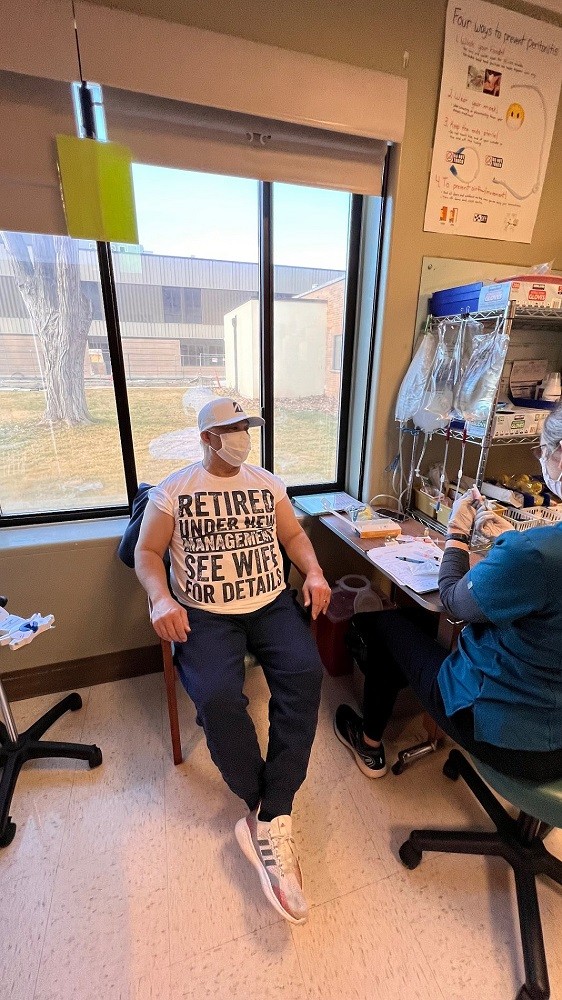
Sarah: If you didn’t already know he was battling end-stage renal disease, you wouldn’t have a clue.
He was, and still is, that same Tim Fuller who wants to make sure everyone else is taken care of and not have anyone worry about him.
In the past, we were not so worried about things like going out to eat, to the movies, or to a family gathering such as a holiday. We started to have to work hard to remain as healthy as possible and not be around anyone who might be sick.
Soon after Tim was diagnosed, we were blessed with our first grandson, Brooks. One year later came our second grandson, Bo. I know that if my husband wasn’t so sick that he would have so much energy to run around with these beautiful boys.
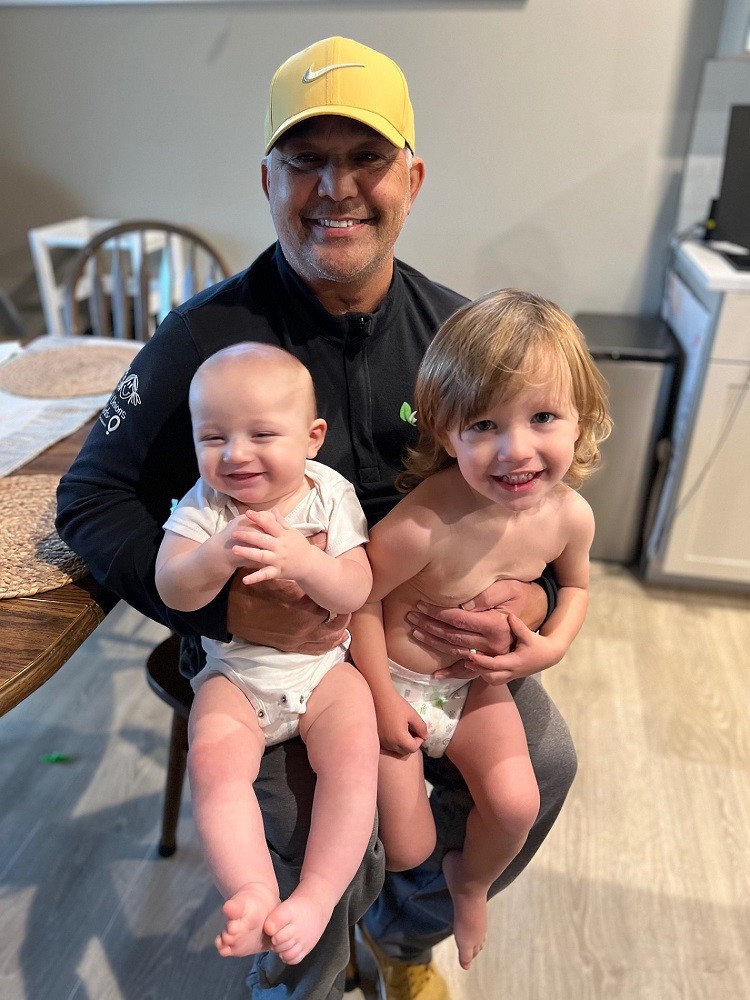
Even in the midst of these challenges, Tim still has his sense of humor—being a big jokester and having a big smile on his face, always trying to make everyone laugh.
When he started dialysis, Tim was not yet where he needed to be to be able to step away from his career and receive his well-earned pension. His nephrologist understood this and monitored him closely.
Not long after, Tim made it to the point where he could receive his pension and medically retire. It was perfect timing because his body was absolutely exhausted.
That is the kind of person Tim is: always making sure everyone else is taken care of first and always providing for his family.
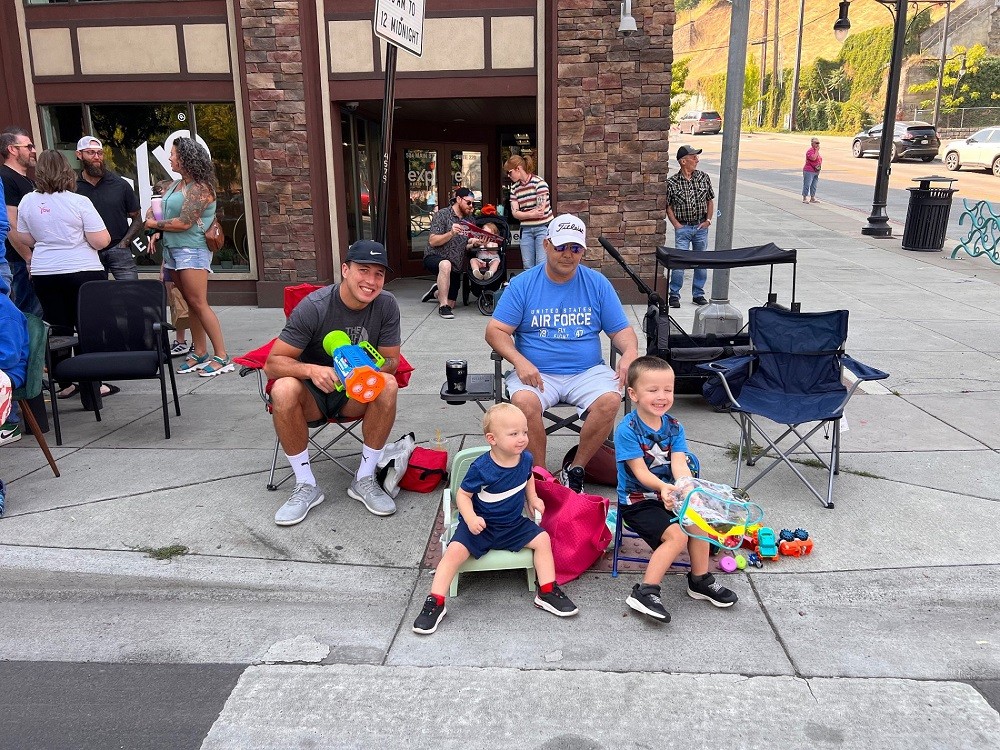
He worked as long as he could and retired the day he was able to do so. It was hard for him to step away—if he had stayed longer, his pension amount would increase, but it was no longer possible.
We still spend as much time as we can playing with the grandkids. We have a blast with them—right now they think they are superheroes, so we have a lot of fun playing pretend.
Tim’s favorite hobby is golf. His son-in-law, Brady, loves golf just as much as he does, and they used to be able to hit the course every weekend. Tim has still been able to get out and golf a few times, which has been really nice to see.
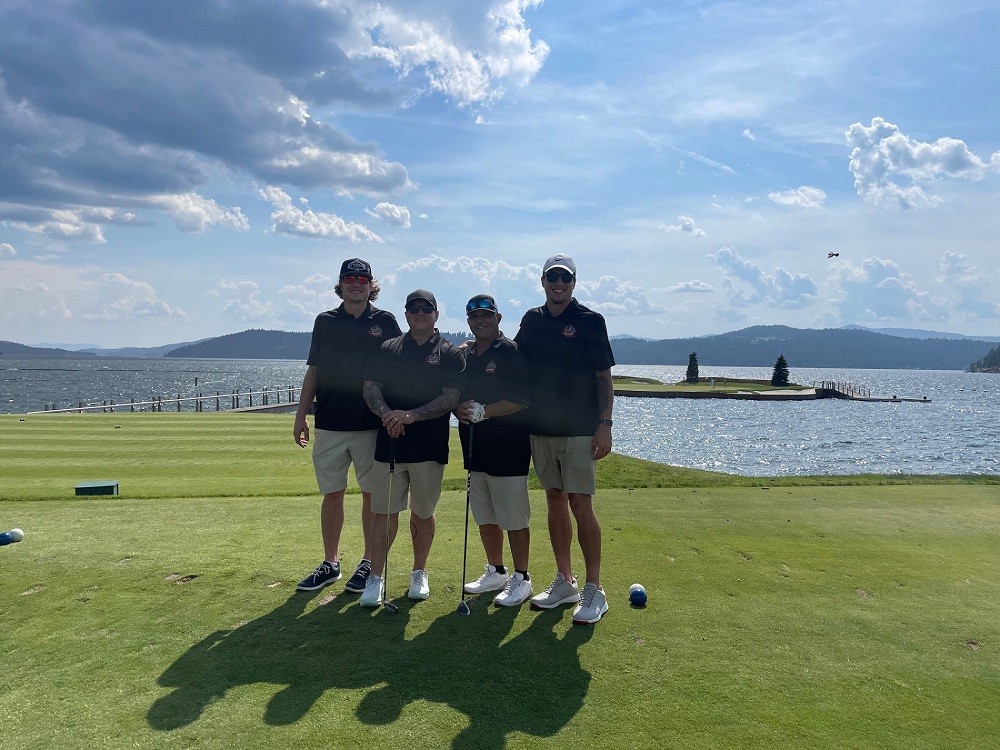
We’ve heard stories about how good you feel following a kidney transplant, and I really hope and pray to see him out there again on those local courses.
It will be such a joy to see clubs in his hand and a big smile on his face.
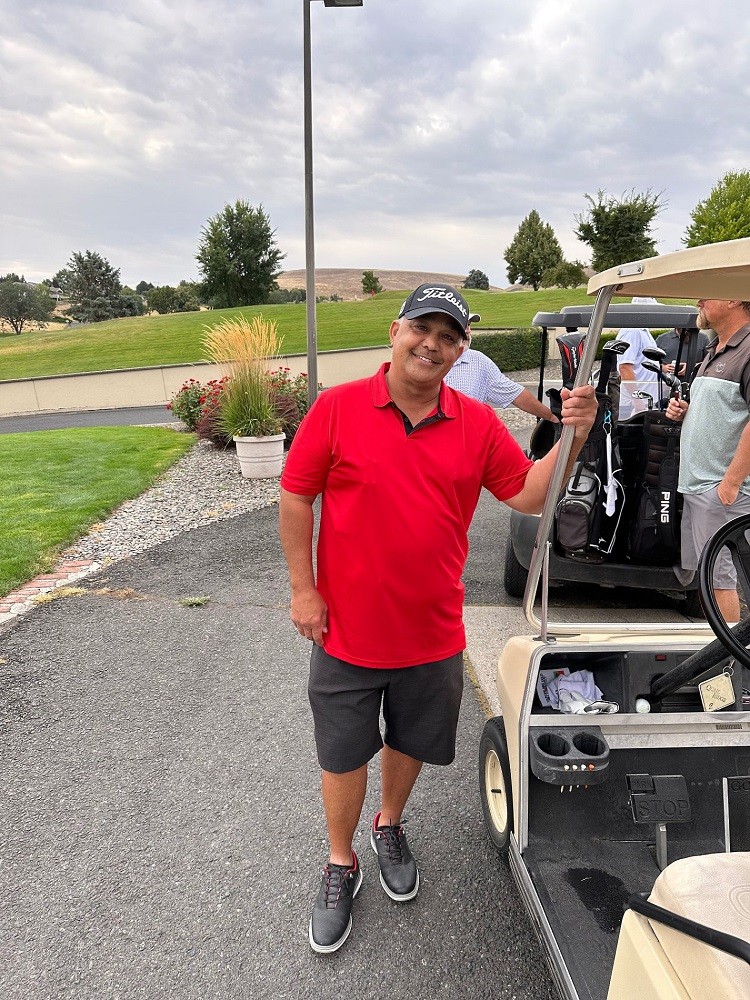
My life has changed dramatically. I dealt with so many emotional challenges as well as his physical complications, and it got to the point where even bringing up his health would cause me to cry.
Eventually, Tim looked at me and said, “Quit writing my obituary.”
That broke my heart. It woke me up, and he was completely right. My fear won’t go away, but now, I am able to communicate about these things and do my best to keep living life.
We have made so many good memories since his diagnosis.

When did you encounter the financial burden that would come along with a transplant?
Tim: I chose my transplant center knowing that such a serious procedure should be performed by the best hospital and medical team that we could access, even if it was multiple hours away from home.
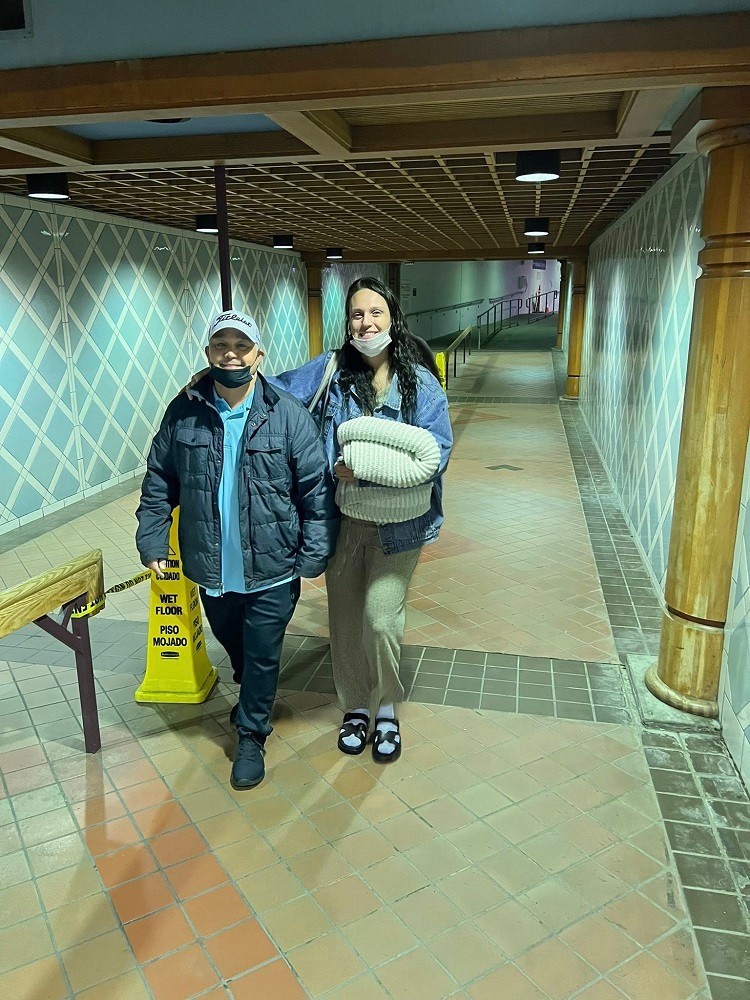
Sarah: We also realized there would be a financial challenge associated with Tim’s transplant when we learned we’d have to relocate for a few months (at minimum, with no complications). Tim is medically retired and on a fixed income, so I am the only person still working.
Tim and I learned that we would need to stay close to the transplant center for a minimum of 6-8 weeks, staying indoors and letting him recover in a safe location until he is able to travel back home safely.
I knew I would be without income for the time of our relocation, and we would still have to cover our living expenses both in our temporary home and back at our house. The average cost of housing alone that will meet our basic needs near his transplant center was $4,000 per month.
Our goal became to fundraise for the expenses that Tim’s insurance wouldn’t cover throughout this period of medical relocation. We heard about Help Hope Live through our social worker at Tim’s transplant center.
We heard great things about Help Hope Live, including that it was a nonprofit, and she advised us to look into it for help.
We need that help so that Tim can recover and not have to worry about how we are going to cover our basic expenses.
Tim is a good man, and he would give the shirt off his back to anyone who needs it. That’s why we’re so grateful to anyone who considers helping our family and becoming a part of this journey with us.
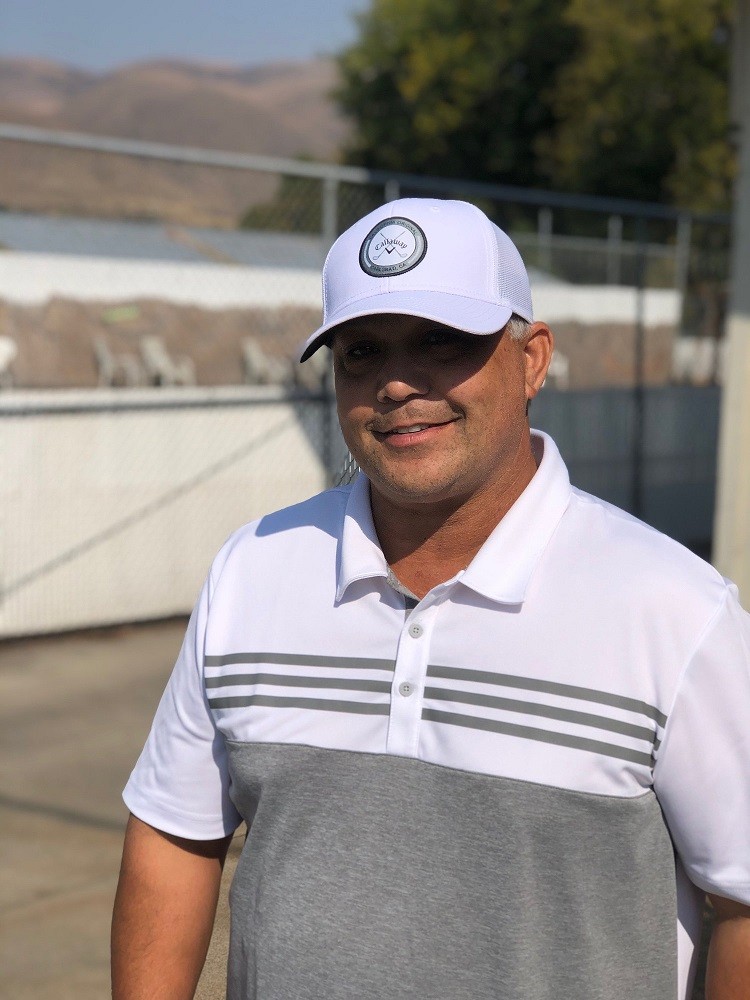
What do you love most about your community?
Tim: It is a family-oriented community that is diverse in its love for so many different things—outdoor sports, dance, 4H, and beyond. This community is full of hard-working families that provide for their loved ones, and a huge range of professions for such a small community.
They have embraced my cause and my family’s cause. They have reached out and shown so much love and a lot of help, prayers, good wishes, and love to my family.
For a person in my situation, people coming together to donate to Help Hope Live in my honor is truly a way to give hope and help support life.
There is a love and care reaching out from the people who surround us, even when we don’t see them. They are willing to help, and willing to show their love and support.
It is a beautiful thing. I thank them, and I hope that God blesses them.
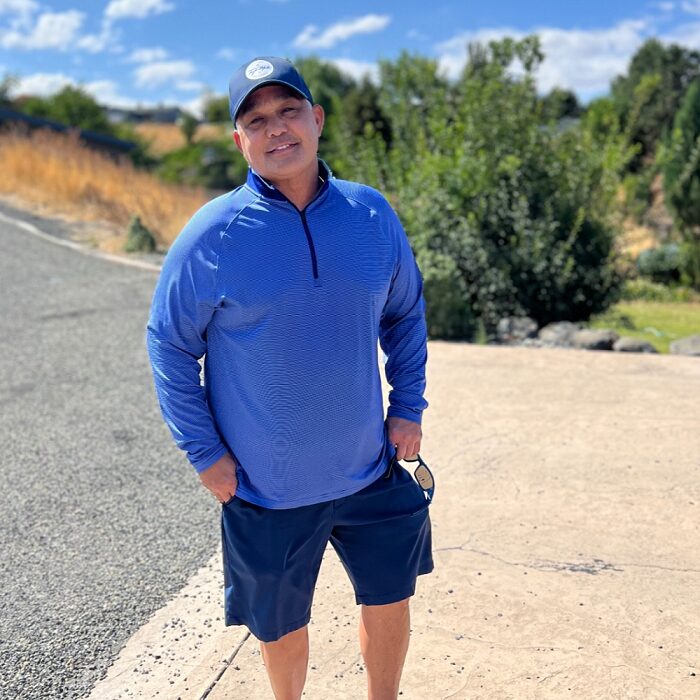
Sarah: The thing I love most is the love and support this community has given us. We are a small valley, and when we get together as a community, we REALLY get together. So many people have read, followed, or become a part of our journey and sent us prayers, blessings, donations, advice…
This experience has really opened my eyes on how a community comes together to create hope in a time of need.
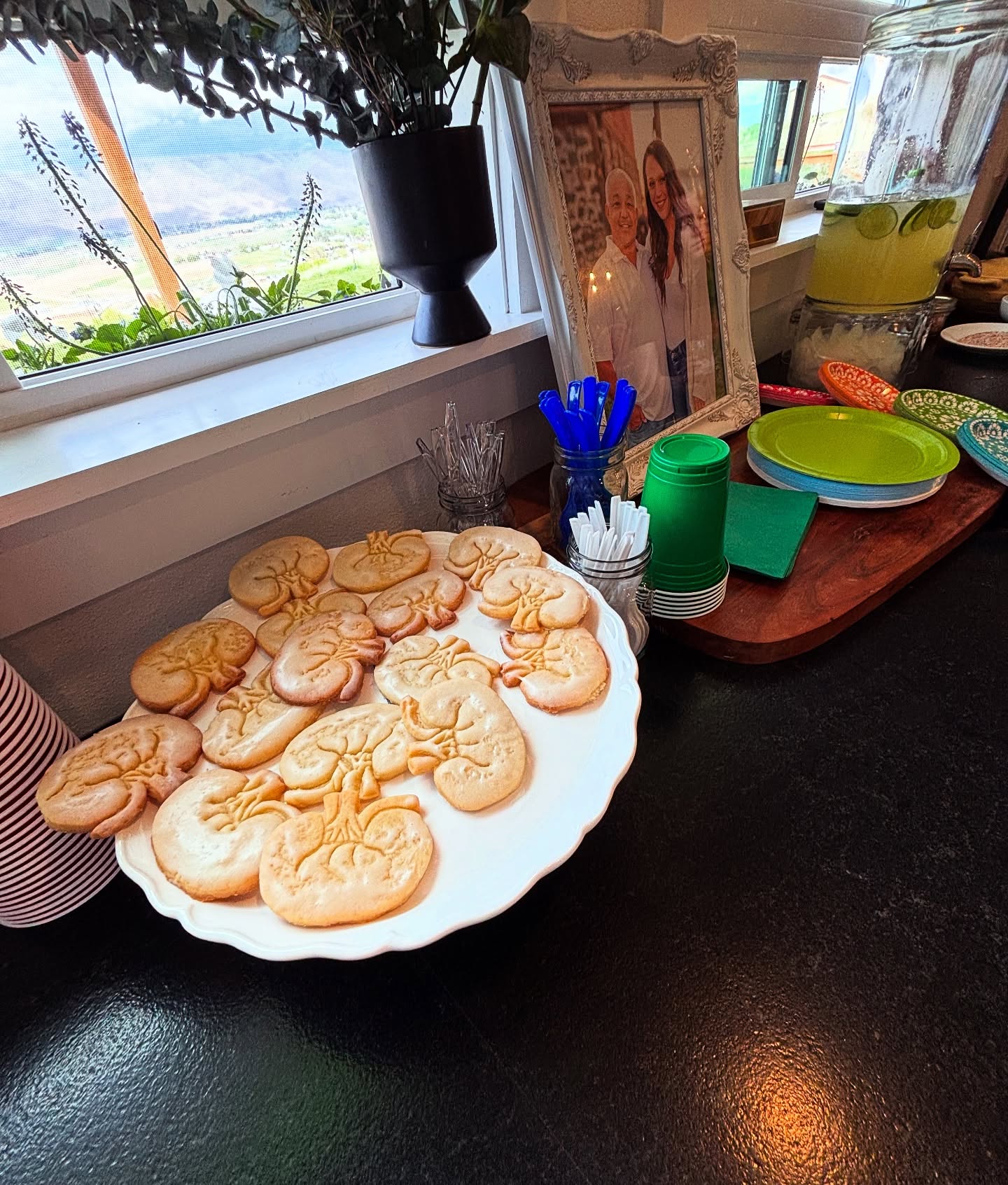
What does the word “hope” mean to you?
Sarah: I use the word hope in my mind several times a day. Now is the time for us to think positively and stay focused on why we are doing this—and the fact that we are ready for it, no matter how scary it is to all of us.
Hope means that I have nothing but trust and faith that everything is going to work out like it is meant to be.
Hope means everything. It means dreams that I need to come true. It means faith.
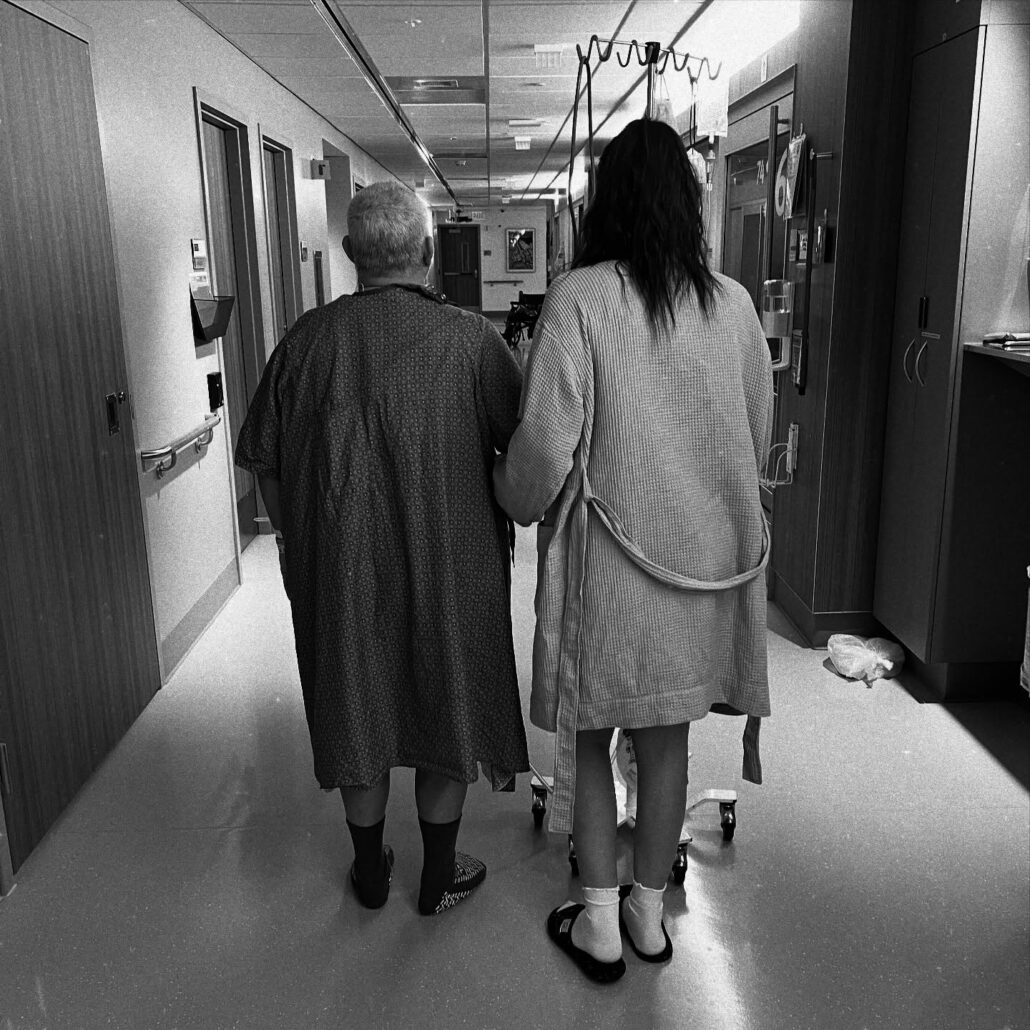
Tim: Hope means that at the end of this journey, I will be safe, my daughter will be safe, and the life that we lead from here on will be a normal one.
Every day, my loving wife is pushing out good energy and loving support, and so are my daughters with their love and encouraging thoughts and prayers. My dialysis team was always encouraging and inspirational.
All these things have given me hope that everything is going to be okay.
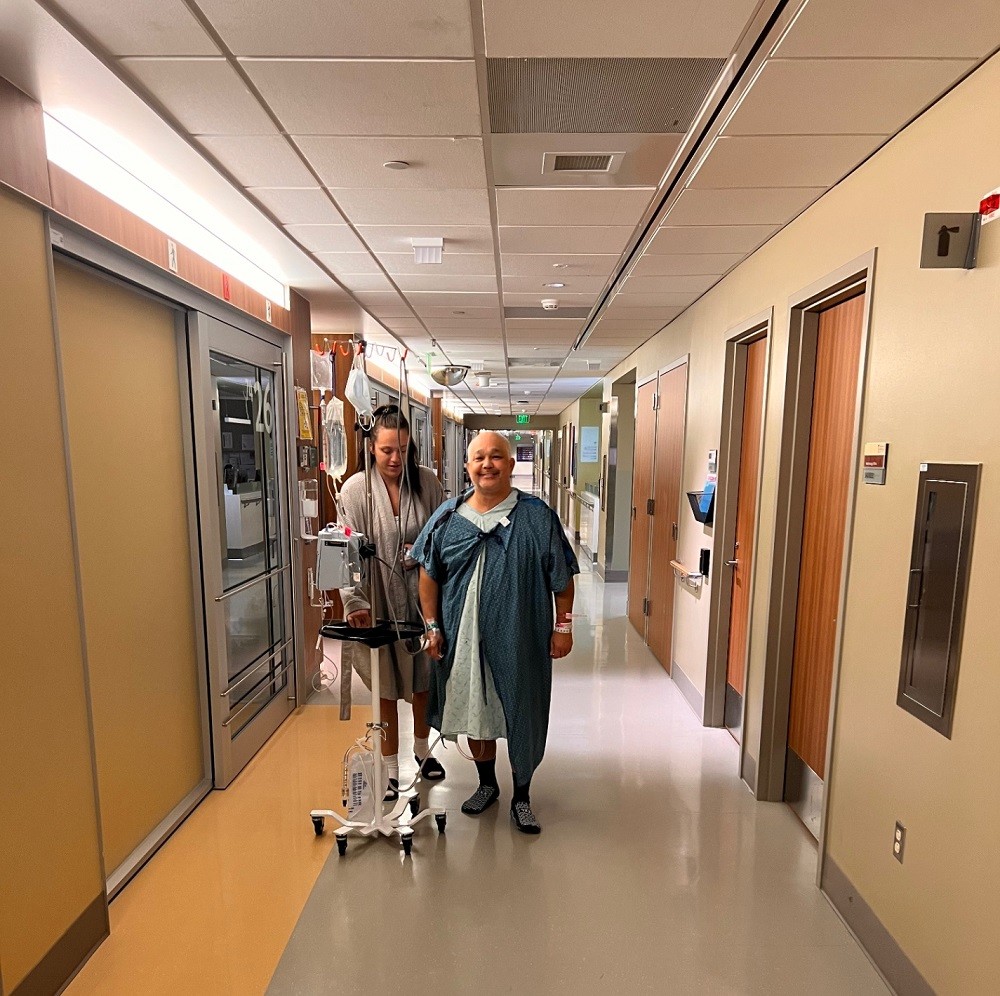
Support Tim, Sarah, Tanis, Makaya, and their loving community by making a donation in Tim’s honor at helphopelive.org.

